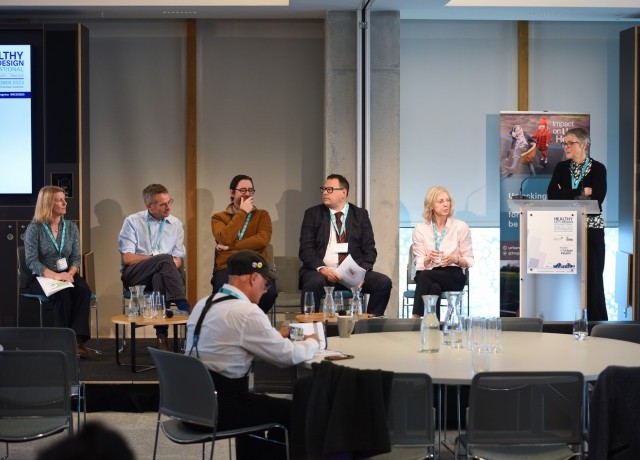
Advisory Group
Our Advisory Group features esteemed members from the fields of architecture, urban design and planning, public health, science and research, and health policy. They provide a valuable sounding board for the organisers in developing the Congress and its themes.

Lord Nigel Crisp
Independent crossbench member, House of Lords, UK
Lord Nigel Crisp is an independent crossbench member of the House of Lords where he co-chairs the All-Party Parliamentary Group on Global Health. He also co-chairs Nursing Now, the global campaign on nursing.
He was previously Chief Executive of the English NHS and Permanent Secretary of the UK Department of Health – the largest health organisation in the world with 1.3 million employees – where he led major reforms between 2000 and 2006.
Lord Crisp is a Senior Fellow at the Institute for Healthcare Improvement, an Honorary Professor at the London School of Hygiene and Tropical Medicine and a Foreign Associate of the US National Academy of Medicine. He was formerly a Distinguished Visiting Fellow at the Harvard School of Public Health and Regent’s Lecturer at Berkeley.
His publications on global health include Turning the world upside down – the search for global health in the 21st Century; Global Health Partnerships; One World Health – an overview of global health after Global Health Partnerships; and, edited with Francis Omaswa, African Health Leaders – making change and claiming the future. He described his time as Chief Executive of the NHS in 24 Hours to Save the NHS – the Chief Executive’s account of reform 2000 – 2006.
A Cambridge philosophy graduate, he worked in community development and industry before joining the NHS in 1986. He has worked in mental health as well as acute services and from 1993 to 1997 was Chief Executive of the Oxford Radcliffe Hospital NHS Trust, one of the UK’s leading academic medical centres.

Antonia Orr
Partnerships manager, Impact on Urban Health, UK
Antonia joined in November 2021 and is part of the Research and Development team in Impact on Urban Health, working closely with other programmes as well as communications and policy colleagues.
In June 2023, she joined the Policy and Influencing team, where she continues to develop on our national and international partnership work.
Prior to joining Impact on Urban Health, Antonia was chief executive of Coalition for Efficiency, a small, collaborative charity that supports charity and community leaders to reflect on, measure and manage the impact of their organisation and initiatives. Antonia has close ties with Mexico, where she worked for Semillas, a women’s fund supporting gender justice initiatives.

Matthew Ashton MPH, MBA
Director of public health, Liverpool City Council, UK
Prof Ashton was appointed director of public health for Liverpool City Council in April 2020 in a joint appointment with the University of Liverpool, where he is an honorary professor in the Department of Public Health and Policy.
He leads a team of 30 people in the local authority, covering a range of public health activities, including the commissioning of public health services, health protection, health improvement, healthcare public health, embedding health in all policies approaches, and addressing the wider determinants of health.
Matt led on the response to the Covid-19 pandemic for Liverpool, and his efforts have been recognised nationally through the award of the Faculty of Public Health’s presidential medal in 2021, and also the Chief Medical Officers' National Impact Award in 2022.
Matt is passionate about bringing together the best people and partnerships in the region to improve health and wellbeing and reduce inequalities in local communities.

Julia Thrift
Director, Healthier Placemaking, Town and Country Planning Association, United Kingdom
Julia Thrift joined the TCPA in May 2013 and manages projects concerning planning and public health, green infrastructure, and planning and social justice. Throughout her career she has been interested in the links between the design of the built environment and the quality of people’s lives. She worked for CABE, the Commission for Architecture and the Built Environment, where she was the founding director of CABE Space, the government’s adviser on policy and practice regarding England’s urban parks and public spaces. She began her career as a journalist, writing about design, architecture and art. She has a degree in philosophy from University College London.

Lord Andrew Mawson
Chair, 360 Degree Society, UK
Lord Andrew Mawson is a leading British social entrepreneur. He became Chairman of Well North Enterprises in 2019 following the success of the Well North programme, which Andrew led from 2015 – 2019. This was a Public Health England initiative which brought together the public and private sectors, and local communities to improve the health of people living in some of the most deprived parts of the North of England. Well North has now evolved into 360 Degree Society, a social business driving a national mission to put people at the heart of places and create health and wealth outcomes for communities across the UK. So far, the 360 Degree Society team has grown 15 Innovation Platforms across the country. Andrew is perhaps best known for founding the Bromley-by-Bow Centre in East London, the first working example of a fully integrated primary health care facility in the country. The centre today has over 287 staff, 97 businesses it has built with local people, and is responsible for 55,000 patients across Poplar. The centre is visited by over 2000 people a year from across the country and internationally. The 360 Degree Society has grown out of this 40-year track record and is now taking the principles originally developed at the Bromley by Bow Centre and working with partners to apply them in challenging communities across the country. Andrew, also founded Community Action Network (CAN) in 1997, a national programme for social entrepreneurs, Poplar Harca (one of the country's first housing companies) and Leaside Regeneration Ltd, which brought in over £100 million investment into the Lower Lea Valley. Andrew has now “graduated” from most of these ventures and each of them continues as a successful organisation. Through 360 Degree Society and Andrew Mawson Partnerships, Andrew works alongside a leading national thinkers, entrepreneurs and doers to grow and replicate his approach and successes including the national Science Summer School with Professor Brian Cox. In 2012, Andrew was made a Freeman of the City of London. He is also the author of the book, “The Social Entrepreneur: Making Communities Work.” Andrew’s work is also featured in Lord Crisp’s latest book (former CEO of the NHS) ‘Health is made at home; hospitals are for repair’. Andrew and his partners wrote the first paper proposing that the Olympic Games be brought to East London in 2012. He was involved in the Olympic project for 19 years from day one. He was a Director of the Olympic Park Legacy Company (OPLC) and then the London Legacy Development Corporation. Andrew Chaired the Regeneration and Community Partnerships Committee for 10 years on both boards, stepping down in 2018. Since the Games this development corporation has planned, developed, and managed the Olympic Park in East London and is creating a lasting legacy from the 2012 Games. The new £1.1billion East Bank campus development has brought to the Park the Victoria and Albert Museum, University College London, the BBC and Sadlers Wells, the London College of Fashion to name a few. This £1.2 bn project was Andrew and Paul Brickell’s original idea in 2006, which was an attempt to build an Innovation District in the heart of the east end of London based on the Bromley principles, bringing together business and social entrepreneurs. The project was backed by the then Mayor of London, Boris Johnson, when he was Chairman of the London Legacy Development Corporation. Under the AMP banner, Andrew co-founded One Church 100 Uses CIC and launched the Water City Group to create and implement a vision for East London revitalised by the opportunities of the 21st Century and the 2012 Olympic Games. Andrew was made a life Peer in 2007 in recognition of the social impact of his work, and he now sits as an independent Crossbench Peer in the House of Lords.

Daniel Black MSc
Research director, TRUUD, UK
Daniel is a research director specialising in urban development, corporate decision-making, and bridging academic research to real world impact. He is currently based at the Bristol Medical School and co-leads the TRUUD £10m research consortium.
Daniel trained originally in economics, then urban design and planning, before specialising in impact assessment methods for large-scale development. He set up his own consultancy, Daniel Black + Associates | db+a, in 2012. Since then, he has led with academic partners a series of successful research bids covering urban planning; public health; corporate decision-making; climate change; food; energy; water; and waste.
Having spent over a decade in practice, learning about processes and detail downstream in a range of urban disciplines, including transport, urban design, building construction and community engagement, Daniel now leads research into decision-making that takes place upstream: governance, partnerships, corporate strategy, and risk management.
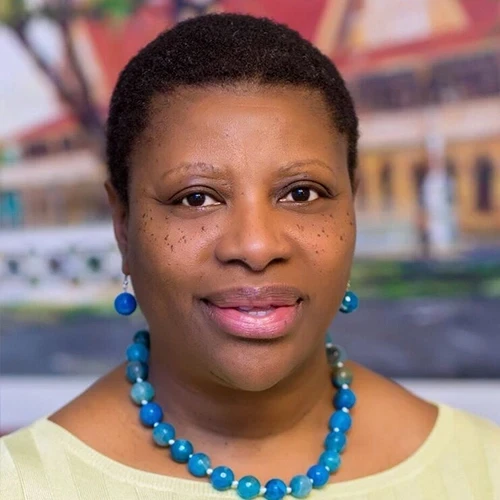
Yonette F. Thomas PhD
Founder and president, UrbanHealth360, USA
Dr. Yonette Felicity Thomas is the founder and president of UrbanHealth360, an organization of multidisciplinary thinkers centered on a people-oriented, community-focused approach to urban health. Dr. Thomas is a globally acknowledged thought leader, urban health champion, and an advocate for valuing the health of women and girls as an economic imperative. A social epidemiologist/medical sociologist by training, she has served as the chief of Epidemiology at the National Institute on Drug Abuse in the National Institutes of Health, held academic positions at University of Miami Miller School of Medicine and Howard University, and as a vice president for research. She founded Borjoner International and Strategic Transitions to influence the progress, health, and wellbeing of individuals and communities across the world. As a founding board member of Women’s Economic Imperative (WEI), she leads the organization’s focus on the health of women and girls as an economic value. Her work as global advisor for Evidence for Sustainable Human Development Systems in Africa (EVIHDAF) and the Centre for Urban Health and Development within the Asian Institute of Poverty Alleviation (CUHD-AIPA) extends her focus on the global south and the realization of the Sustainable Development Goals in this last decade. She is the Associate Editor for Women and Girls for Cities & Health.
She is a founding board member of the International Society for Urban Health (ISUH) and recently led the organization into sustainability by serving as the inaugural executive director (as a board member) and has served as a science advisor for urban health to the New York Academy of Medicine. She is a founding board member and former vice president of the Interdisciplinary Association for Population Health Science (IAPHS) and served on the Steering Committee of the National Hispanic Science Network on Drug Abuse for more than a decade.
She served on the National Academy of Sciences Committee on Revisions to the Common Rule for the Protection of Human Subjects in Research in the Behavioral and Social Sciences. Her primary research and publications have focused on the social determinants of health, health disparities, the health of women and girls as an economic value, the social epidemiology of drug abuse and HIV/AIDS and the link with geography, including edited volumes: Geography and Drug Addiction, Crime, HIV, and Health: intersections of Criminal Justice and Public Health Concerns.

Sunand Prasad OBE
Programme director, European Healthcare Design; Principal, Perkins&Will, UK
Sunand Prasad is a principal at Perkins&Will. While designing across several sectors, he has been consistently engaged in healthcare and sustainability for four decades. At the core of his architectural practice, alongside interdisciplinary collaboration, Sunand holds a passionate belief that expertise and aesthetic judgement are most effective in creating truly successful environments when they are catalysed by the everyday experience of people.
Sunand has been active in the wider built environment industry, particularly championing low-carbon, regenerative design, and until recently, as chair of the UK Green Building Council. He was President of the Royal Institute of British Architects (RIBA) from 2007 to 2009, campaigning for action on climate change. He was founding member of the UK Government’s Commission for Architecture and the Built Environment; a London Mayor’s design advocate; a trustee of the Centre for Cities; and Chair of the trustees of Article 25, the humanitarian architecture charity. He currently chairs the Editorial Board of the Journal of Architecture and the External Advisory Board of TRUUD, a major research project on the fundamental links between health and urban development. He has written widely on architecture, sustainability and healthcare design, such as the book 'Changing Hospital Architecture'.

Michael Chang PhD candidate
Programme manager - planning and health, Office for Health Improvement and Disparities, Department of Health and Social Care, UK
Michael is a chartered town planner and honorary member of the UK Faculty of Public Health. He led the Town and Country Planning Association's 'Reuniting Health with Planning' initiative, producing widely-regarded publications and supporting local authorities on the policy and practice of delivering healthy places through the planning process. At Public Health England (now Office for Health Improvement and Disparities), he provides expert planning input across a number of topic areas. Michael also co-founded the Health and Wellbeing in Planning Network.
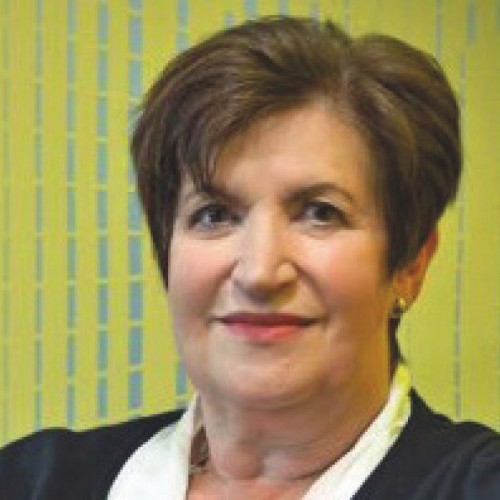
Beatrice Fraenkel
Design regeneration and health consultant; Trustee, Design Council, UK
Beatrice is an industrial designer and ergonomist with particular expertise in designing systems and products aligned to end user requirements. Her early career was in design, ergonomic research and teaching at UMIST and Liverpool University. Her public-sector life has always involved regeneration and economic development schemes at a local and regional level – first as chair of the Rope Walks Partnership in Liverpool, then as chair of Renew NW. Beatrice was a non-executive director of Liverpool Health Authority, then chair of South Liverpool Primary Care Trust. Beatrice is a CQC special advisor specialising in governance and leadership. She is a trustee of the Design Council and an Hon.FRIBA. Her past roles have included chair of a housing association, trustee of Tate Liverpool, and chair of the Architects Registration Board.
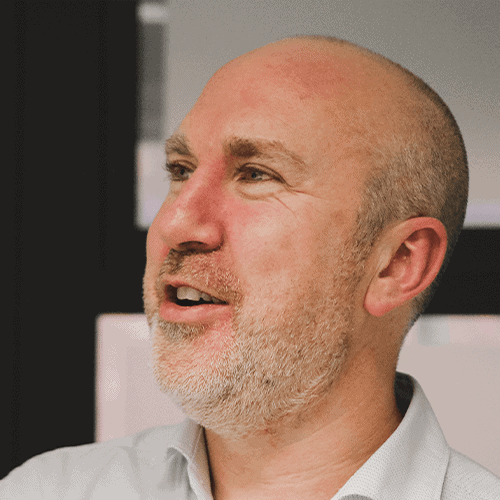
Max Farrell
Founder, LDN Collective, UK
Max is Founder & CEO of the LDN Collective, a network of built environment experts and creatives fighting to improve people’s lives and the planet’s prospects. Members are experts in social impact, zero carbon and modern methods of construction as well as architecture, engineering, graphic design and film-making. They are a dynamic and collaborative ‘one stop shop’ for projects anywhere in the world. Current projects include masterplans for garden communities in Oxfordshire, Peterborough and Solihull; new health and wellbeing resorts in London and the South East; detailed planning applications for Clarion, the UK’s largest housing association and #ParkPower – a crowdsourced vision for the future of London’s green spaces.
Max’s expertise lies in urban planning & strategic communications. He was a Partner at Farrells for 10 years, the internationally renowned architects with offices in London, Hong Kong and Shanghai, before leaving to set up the LDN Collective. In 2021, Max was appointed Chair of Cultural Co-Location for Creative Estuary. With £4.3m funding from DCMS, as part of the Thames Estuary Production Corridor, the ambition is to transform 60 miles of the Thames Estuary into the most exciting cultural hub in the world. Max was Project Lead and Author of the Farrell Review of Architecture and the Built Environment, commissioned by the UK Government, which made 60 recommendations spanning education, outreach & skills; design quality; cultural heritage; economic benefits & architecture policy, many of which have been implemented. He is an adviser to London National Park City, Urban Design London, the Place Alliance, the Urban Room Network, the National Arts and Place Consortium, Community Consultation for Quality of Life and Wild Streets.

Esme Banks Marr
Strategy director, BVN, UK
Esme is Strategy Director at BVN. She specialises in the intersection of human behaviour and the built environment. With a career spanning design, research, communications, and business intelligence, she translates data into actionable insights that shape the future of spaces and places. Esme has worked across diverse sectors, exploring how strategic briefing influences outcomes at every scale - from individual wellbeing to system-wide efficiency. Her expertise lies in bridging gaps between disciplines, ensuring environments are not just functional but deeply responsive to human needs. She is passionate about understanding how people interact with space and how this, in turn, impacts experience. A recognised commentator on the built environment, Esme has contributed to global conversations and publications on design and strategy, the future of work, sustainability and regeneration and digital transformation. Committed to breaking down industry silos, Esme integrates research, data, and strategy with design, to create holistic and future-focused environments. Her work ensures that the built environment evolves in a way that enhances both human experience and organisational outcomes.

Chris Brown
Founder, Climatise; Founding director, London Doughnut Economy Coalition CIC, UK
Chris Brown is a founder director of the London Doughnut Economy Coalition CIC, helping London to play its part in an economy that ‘delivers society’s needs within the planet’s limits.
He is also the founder of Climatise, using blended finance to deliver rewilding, retrofit and renewables. Through Climatise he is a director of fuel poverty and renewables community benefit society SE1 Solar and of retrofit business Future Fit Homes.
He was the founder of urban regeneration BCorps igloo Regeneration which co-founded ‘the world’s first responsible real estate fund’ (United Nations).
He also co-founded the Chrysalis Fund which lends to job creating workspace and green development projects in Liverpool City Region.
Until 2023 he chaired Creative Space and Dataloft (now Pricehubble) and helped management and shareholders execute successful exits.
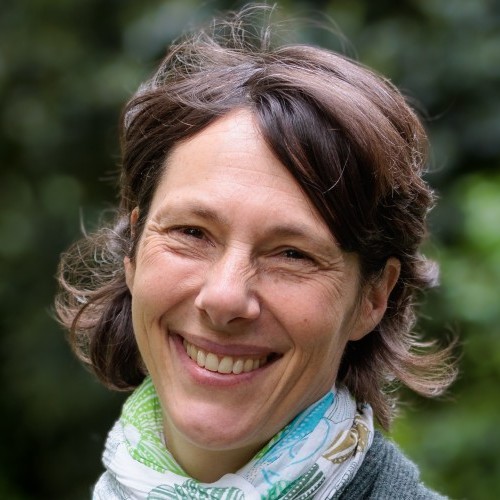
Audrey de Nazelle PhD
Senior lecturer, Centre for Environmental Policy, Imperial College London, UK
Audrey de Nazelle is a senior lecturer at the Centre for Environmental Policy, Imperial College London. Her work, at the intersection of environmental sciences, health behaviour, transportation, and urban planning, aims at guiding decision-makers towards health-promoting built environments and policies. Much of her research has been on the relationships between active travel and air pollution (exposures, health risks and benefits, and societal engagement). Dr de Nazelle holds a PhD from the University of North Carolina at Chapel Hill in Environmental Sciences, a Maîtrise in Mathematics from the University of Paris VI Pierre et Marie Curie, and she was a postdoctoral researcher at the Centre for Research in Environmental Epidemiology (now ISGlobal), Barcelona, Spain.

Mark Robinson
Head of regeneration, New River Group, UK
Mark has a 30-year career focused on town centre real estate, including roles as Chair of the Government High Street Task Force (2020-2024) and President of Revo (Formerly British Council of Shopping Centres, 2019). In 2024, Mark's business, Ellandi, was acquired by NewRiver REIT, where Mark is Head of Regeneration.
NewRiver is the UK's largest investment manager of retail assets, with assets under management of £2.4m, including over 45 shopping centres.
Mark is a strong advocate in the commercial real estate industry in advocating for the intersection of health and place and is experienced in delivering health-based interventions to promote regeneration.
Mark is a fellow at Radix Big Tent, the Institute for Place Management, and on the advisory committee of Platform Places, which promotes partnership-powered place-making.
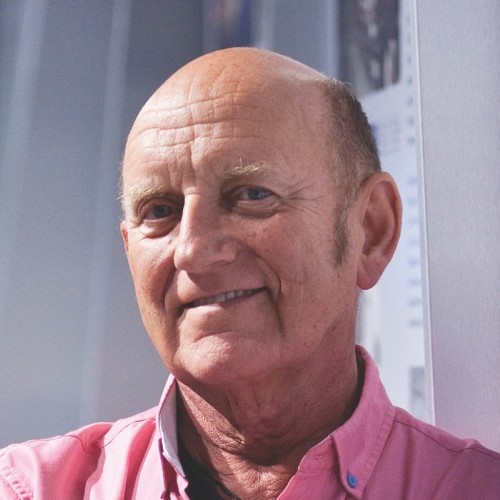
Chris Liddle
Group chair, HLM Group, UK
Chris is HLM Group chair and Strategic director of HLM's custodial, justice and defence sectors. He is hands-on in many of HLM's flagship projects and a champion of social architecture.

Graham Marshall
Director, Prosocial Place, United Kingdom
Graham is an urban designer and landscape architect of longstanding. His work spans research and practice from strategy to detailed context of specific regeneration programmes. He has a particular interest in the meaningful involvement of community members in regeneration and the development of lifetime conversations that reconnect people to their places. He is the Chair/Mentor of the Backin' Birkenhead Town Team that is delivering a community-led Place Plan for Central Birkenhead.
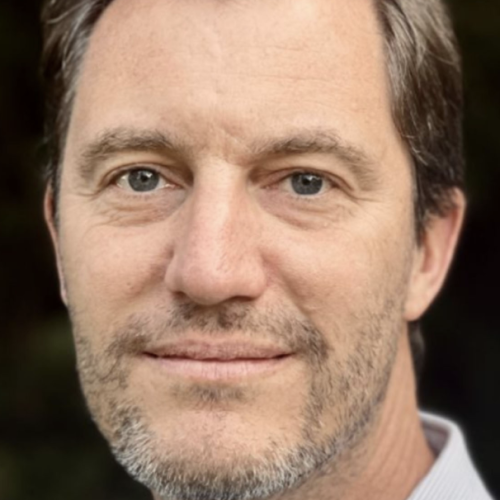
Matthew Morgan
Co-founder, Director, Quality of Life Foundation, United Kingdom
Matthew Morgan is the Director and co-Founder of the Quality of Life Foundation. He is responsible for setting strategy with the Board of Trustees, overseeing the Foundation’s commercial services and delivering lasting impact with the Quality of Life team, itself focused on highlighting the impact of the built environment on people’s lived experience.
With over 20 years’ experience in writing and communications, Matthew has previously worked with architects, engineers and developers; in book and magazine publishing; and with charities and start-ups. He is a participant on a number of advisory boards and chairs a multi-stakeholder group that advises on community engagement as part of the UKRI-funded CCQOL (Community Consultation for Quality of Life) project.
A published author and mental health advocate, Matthew is particularly interested in how communities are formed and their effects on people’s physical, social and psychological wellbeing, an interest he developed while growing up in an intentional community in Kent.
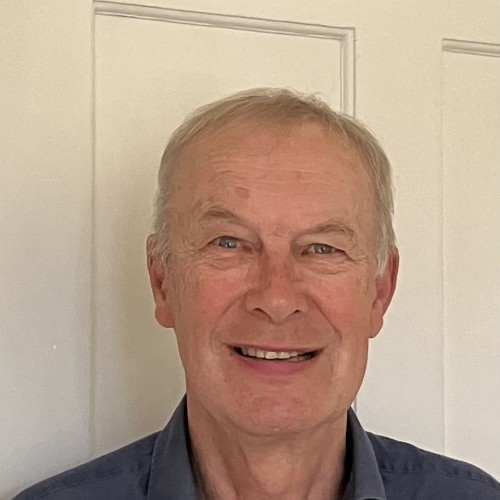
Jon Bright
Former Senior Civil Servant, UK Government, N/A, United Kingdom
Jon was a senior civil servant in UK Government until 2014 working in the Cabinet Office and Ministry of Housing, Communities and Local Government. Roles included Director of Homelessness and Housing Support; Director of a Regional Government Office; and Deputy Director of the Government’s Neighbourhood Renewal and Social Exclusion Units. Since leaving the Civil Service, he has been CEO of a local Citizens Advice service and contributes to training programmes for overseas civil servants. He is also a Trustee of a charity that focusses on neighbourhood planning and community development and is a coopted member of his local council planning committee. He has written 3 books, the most recent ‘Modern Management and Leadership - People, Places and Organisations’ was published in 2023.
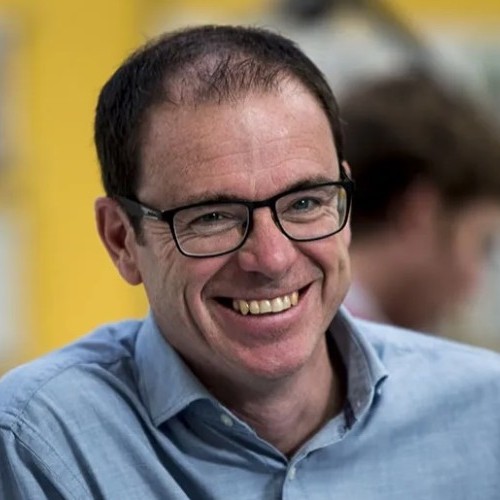
Paul Bell
Partner, Ryder Architecture, UK
Paul is a partner at Ryder, established in Newcastle in 1953, with offices across the UK, Hong Kong, Vancouver and Amsterdam. Projects range in value from £50,000 to £300 million, including civic, education, healthcare, infrastructure, leisure, manufacturing, office, residential, retail and science sectors. Paul completed his architectural education at the Mackintosh School of Architecture, Glasgow in 1992, and with more than 20 years' experience in the healthcare sector, leads Ryder’s healthcare portfolio, which includes the award-winning Dumfries and Galloway Royal Infirmary and the Prince and Princess of Wales Hospice in Glasgow. In 2006, he established Ryder’s Glasgow team and led the early development of the Hong Kong team. Prior to joining Ryder, he worked with Terry Farrell for 11 years in London and Hong Kong, and has spoken around the world on sustainable healthcare design.

Mark Hall
Senior programme manager, Place-based impact investing, Impact Investing Institute, UK
Mark joined the Institute as Programme Manager for place-based impact investing in January 2023. He is focussed on making it easier for investors to do effective place-based impact investing (committing to investments within a target geography that generate a financial return as well as positive social, environmental and economic impacts for local communities).
Mark joined the Institute from Waltham Forest Council where he was Policy and Projects Manager in the Leadership Office.
Mark previously spent 10 years at the Royal Society of Arts, most recently leading research and impact projects in the economy team. He led the RSA’s community banking movement and Collective Defined Contribution Pensions (CDC) Forum, paving the way for new models of banking and pensions to be adopted in the UK. Mark has co-authored several RSA reports including “The road to resilience: how community financial services can help level-up Britain” (2020) and “The cash census: Britain’s relationship with cash and digital payments” (2022).
Outside work Mark enjoys cricket, reading, hiking and spending time with his wife Daisy and daughter Roxy.

Sophia Schuff
Director, Gehl urban design studio, Denmark
Sophia Schuff is a passionate advocate for designing cities that prioritize the well-being of both people and the planet. As a Director at Gehl, an urban design practice on a mission to create more equitable, healthy, and sustainable cities, she leads Gehl’s portfolio serving the Philanthropy sector. In this role, she advocates for improving communities’ social, health and wellbeing outcomes through urban transformation.
Sophia’s commitment to enhancing the urban experience stems from her background as an anthropologist and deep understanding of the human experience within the built environment. She leads projects across various topics including urban design for early childhood development, food systems, regenerative placemaking, and equity in public space.

Deb Upadhyaya PhD, MBA
Client director North of England, Infrastructure (Buildings and Places), AtkinsRéalis, UK
Dr. Deb is a professionally trained architect, urban designer, and planner leading the delivery of exemplar large-scale and complex housing regeneration and garden communities in both the public and private sectors (UK and India) for over 25 years.
A passionate advocate of sustainable urbanism, delivery of quality places, and value creation through collaboration/design-led innovation, he champions inclusion and diversity as the fundamental building blocks of delivering resilient built environments. He works as Director at AtkinsRéalis. In a voluntary capacity, he serves as a board director at The Academy of Urbanism, a panel member for Sheffield, Essex, and Greater Cambridgeshire Design Panels.
He coaches and mentors built-environment professionals and pursues practice-led research on delivering ‘quality’ and ‘at pace’ in partnership with the built environment sector on ‘sustainable development goals, smart technologies, and climate change’.
A Chartered Town Planner, Chartered Manager, Recognised Practitioner in Urban Design, and a Fellow at the RSA, he has a Doctorate in Philosophy on ‘Changing Paradigms of Evolving City Centres’ and an Executive MBA from the University of Sheffield.

Ben Cave
Director, Ben Cave Associates, UK
Ben Cave has specialised in public policy, health and social impact assessment for 25 years. He provides advice at a senior level in local, regional, national and international arena.
He is interested in how public health advice and evidence can be presented so that it informs policy at strategic and at local levels. This requires cross-sectoral work with health authorities; urban planners; legal profession; civil society and developers.
Ben Cave has led Health Impact Assessments (HIAs) in conjunction with environmental assessments and focuses on providing high quality HIAs that are robust and defensible.
He has advocated for public health in a wide range of sectors: for example, housing, regeneration and mixed-use developments and infrastructure for energy, mining and transport.
He has prepared, and contributed to, expert documents on the inclusion of health in the assessment of plans and projects for national governments and for UN bodies (WHO Regional Office for Europe, United Nations Economic Commission for Europe); and financial institutions (World Bank; European Investment Bank).
Ben Cave runs a specialist consultancy. He served as elected president of the global International Association for Impact Assessment from 2020-2021 and he is an active member of the European Public Health Association. He is an Honorary Professor in the Department of Geography and Planning at the University of Liverpool where he is also a member of the WHO Collaborating Centre for Health in Impact Assessment.




